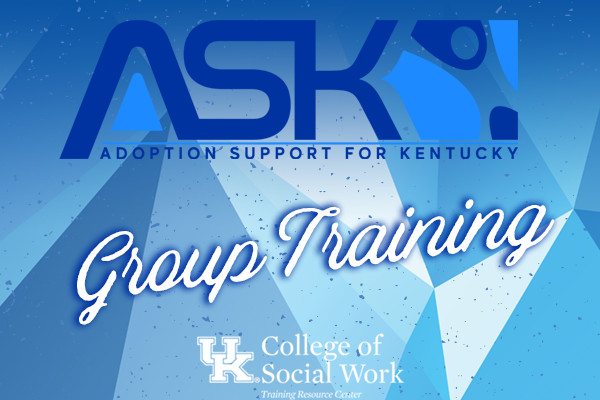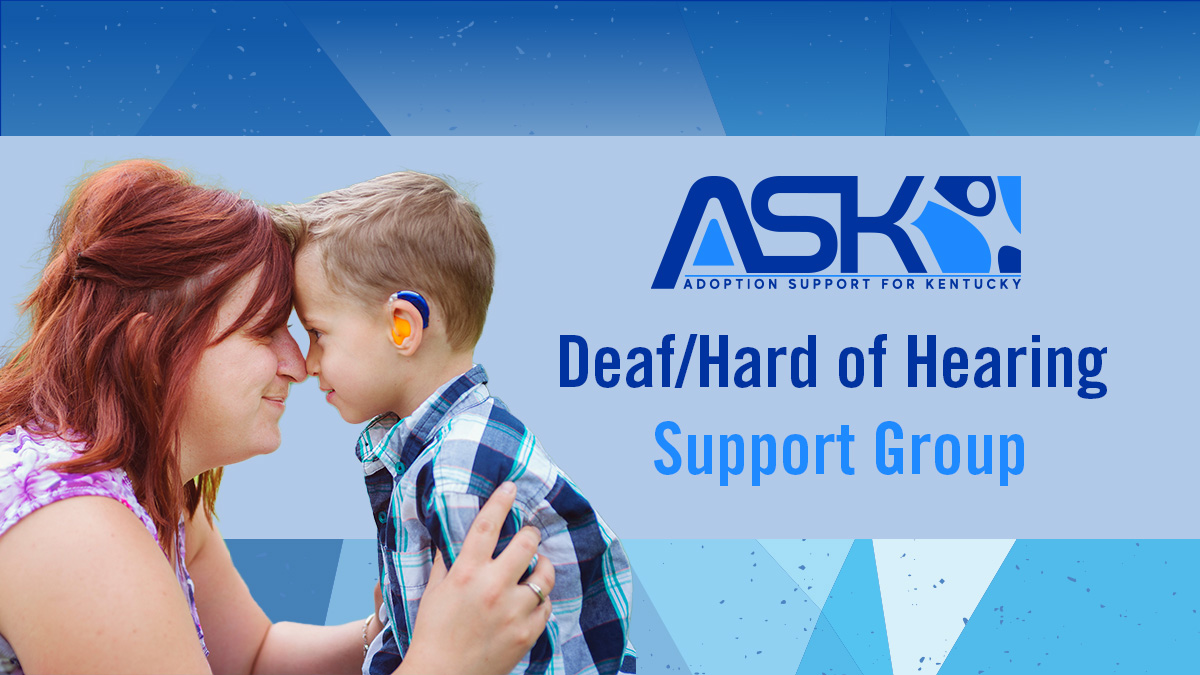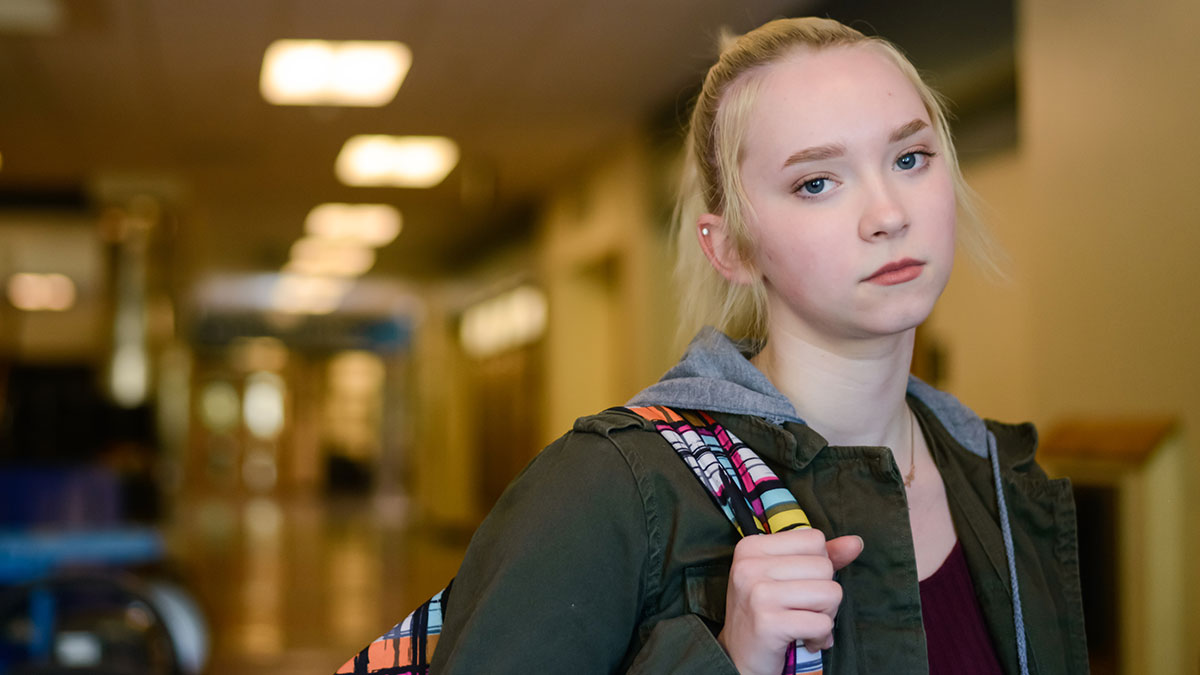
ARC Meetings & IEPs: The Basics
ARC Meetings & IEPs: The Basics will help foster and adoptive parents understand the process of an ARC Meeting and gain a better perspective of what an IEP will look […]

ARC Meetings & IEPs: The Basics will help foster and adoptive parents understand the process of an ARC Meeting and gain a better perspective of what an IEP will look […]

ASK-VIP Support Group for Foster/Adoptive Parents Caring for Deaf/Hard of Hearing Children provides a welcoming, safe environment for foster and adoptive parents to share resources, concerns, ask questions, and connect […]

A Child’s Education: Rights & Responsibilities will inform parents of the Individuals with Disabilities Education Act (IDEA). The training informs foster and adoptive parents of the processes used to determine […]

What to Ask When Called About a Placement will help foster and adoptive parents gather information before accepting a placement of a new child. During the training, participants will discuss […]

The presentation will cover what psychoeducational groups are and what this model looks like in treatment. The history of where psychoeducational groups started will be discussed and how the original model has developed into what psychoeducational groups look like today. Why a group model is effective will be covered and why there is an emphasis placed on the group instead of an individual session.
The transformation from how psychoeducational groups started to how psychoeducational groups look now will be discussed on the foundation of various theoretical approaches. The theoretical foundations will include the psychodynamic theory, cognitive behavioral theory, attachment theory, transtheoretical model, and motivational interviewing. There will be a discussion on how the search strategy was carried out throughout the research process including what databases were used, the search terms, and the process of selecting the literature for this project.
Finally, the presentation will include how there can be an improvement in practice, research, and policy. The future of psychoeducational groups will be contingent on how this is carried out.

In a military treatment facility, providers are encouraged to utilize evidenced–based psychotherapies (EBPs) as suggested by the DOD/VA in their clinical practice guidelines. However, there are many barriers and issues with (EBPs) that limit their use. Integrated psychotherapy may be the answer.
This presentation will discuss the concept of Integrated psychotherapy, identify integrated psychotherapies that exist in research on a military population, and discuss the common factors theory. The presentation will also include an example of what an integrated therapy may look like by showcasing a basic conceptual model combining EMDR and Contemporary Psychodynamic therapy techniques. A case study is included in the presentation, in which this model was retrospectively applied to a patient.

There are three separate yet interrelated products that made up this final capstone product. The completed product is focused on pet hospice veterinary support staff and the need for an evidence-based mitigation protocol to combat secondary traumatic stress.
The first product was the Systematic Literature Review (SLR). The SLR utilized a scoping review process to locate prior research or literature related to pet hospice veterinary support staff and secondary traumatic stress. No existing literature or research was found on these two topics.
The second product was a conceptual paper that introduced the creation of psychoeducational support groups for pet hospice veterinary support staff, once the occupational hazard of secondary traumatic stress was defined for this population. Psychoeducational support groups, using the andragogy within adult learning theory as a platform, provided the intervention for support within veterinary medicine.
The third and final product was the practice application paper, which outlined how to operationalize a psychoeducational support group in a pet hospice setting with support staff. This final product also explored limitations and future directions for social work practice.

What is an alternative learning environment, and who attends school in these settings? A quick Google search can answer this and more about alternative learning environments and attendees. However, little is known about the caregivers of these students–the parents, grandparents, and guardians whose lives are significantly impacted by their patterns of school difficulty.
Alternative learning environments are often the last shot at education for students and the last hope for their caregivers. For the latter, there may also be other feelings about the transition, layered with environmental and familial stressors, impacting their beliefs and attitudes about it. This transition is an opportunity for school personnel to address the systemic factors affecting caregivers and students that played a role in this transition. The opportunity begins with reimagining the intake process.
This presentation is for education system stakeholders and participants interested in school social work or school administration, particularly in alternative learning environments. Participants will be challenged to explore reasons why the overall approach to the engagement of caregivers of students in alternative learning environments must change. A brief overview of traditional approaches to engagement will be provided, noting why these approaches have not been effective for this population of students and caregivers. Participants will be introduced to a conceptual model grounded in an ecological systems approach to the intake process. Finally, implications for practice application and further will be discussed.

What does the research say about the connection between volunteerism and rural community development? This session will present findings from the literature base, specifically regarding how the community functions as an ecosystem in which every member has a role to play. Focus will be given to challenges facing rural communities, cultural strengths of rural people, and how volunteerism can utilize those strengths to increase community development.
A new training curriculum grounded in research will be conceptualized as a solution to increasing volunteer reliability in the service delivery process. Major takeaways for those working with volunteers include new ways of thinking about intrinsic motivation, connecting volunteer work to larger community challenges, and important considerations for working in culturally sensitive ways with rural people and communities.

This session will disseminate the scholarship and Capstone Project on addressing racial inequity in child welfare through child welfare worker training. Content will include statistics and data on the current scope of racial inequity in child welfare to provide awareness of the practice problem. A synthesize of the literature will be provided on anti-racism, diversity, equity, and inclusion (ADEI) training topic and fidelity for child welfare workers.
The identification of training ineffectiveness in worker ability to apply skills learned in practice will be highlighted, along with identification of current theory guiding practice and ADEI training. A new theoretical framework will be presented including Critical Race Theory currently guiding some implementation of training, and the addition of Transformative Learning Theory, Active Learning Theory, and Social Learning Theory to guide child welfare worker learning and ability to apply knowledge in practice.
Lastly, a proposed application to practice will be presented, including the delivery of training on an ongoing basis, activities to facilitate belief transformation, activities to facilitate active learning, and the enhancement of fidelity in practice through coaching, modeling, and inclusion in supervision.

The period after psychiatric hospitalization can be difficult for individuals for a number of reasons. Numerous barriers exist to establishing outpatient mental health care. Without continued treatment, individuals are at risk for increased symptom burden, hospital readmission, and suicide.
Emerging best practice recommends that hospitals follow-up with patients following discharge to ensure good continuity of care. Despite this growing acknowledgement and need for accountability, hospitals are slow to implement such interventions. The following capstone project explores whether transitional care interventions led by social workers improve various patient and systems-level outcomes.
Employing a functional use of self, social workers are uniquely equipped to implement creative interventions in the gap following psychiatric discharge. Finally, research informs practice through direct implementation of a caring contacts program. Both the literature review and practical application of phone-based contact interventions show promise in positively impacting various outcomes, including reduced suicide rate, decreased hospital readmissions, and increased kept outpatient appointments.

Humans manage healthcare systems, and all systems change the experience and acknowledgment of systematic errors. Fortunately, for the most prominent life-preserving system in the world – the United States Healthcare System, human error is the beginning of creativity and change. The mental healthcare system and its workforce are desperate to create an effective burnout remediation program.
Burnout affects an individual’s quality of life and impacts an organization’s treatment outcomes. The phenomenon is commonly addressed through minimization or, worse, a professionally acceptable experience in the mental health field. Current prevention and remediation efforts rely heavily on self-care practices while ignoring the organization’s contributory role in burnout causality.
The system highlights an error in organizational responsibility to address burnout as its latter approach, focused on individual self-care accountability, has drastically failed. This capstone presentation synthesizes decades of research on burnout, emotional intelligence, and organizational leadership practices to support the development of burnout remediation programs across the mental health profession.